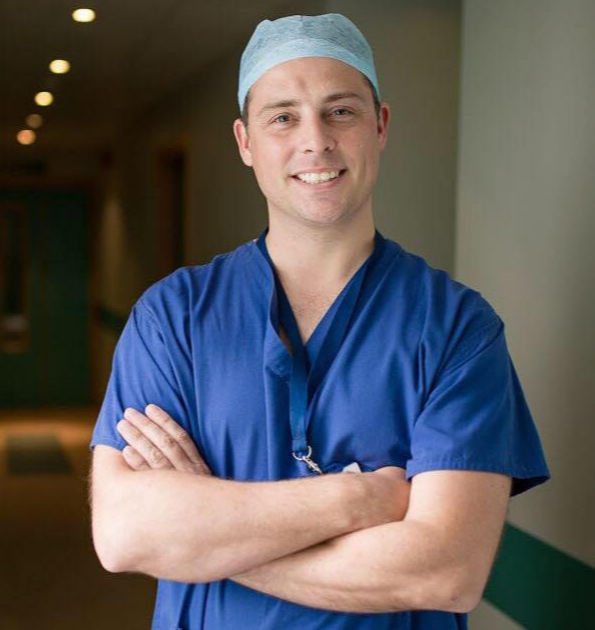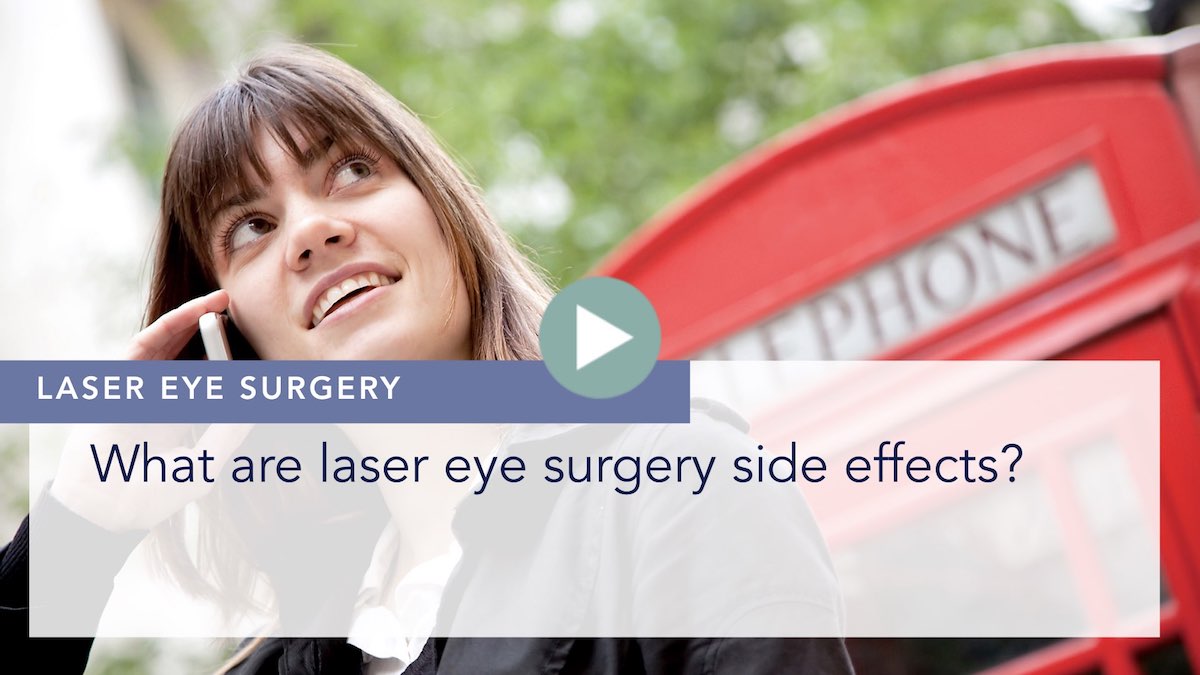Interview transcription:
In an interview, Alex Shortt discusses the side effects that patients might experience after laser eye surgery.
Interviewer: And so what are the known side effects in the sense that perhaps these issues just kind of happen but they go away? What should people be able to expect reliably after a procedure?
Foggy vision
Alex Shortt: Immediately following LASIK or following ReLEx SMILE, what the patient will experience is foggy, misty vision. Now patients typically sit up on the bed, and they say “much more in focus. I can see that. I couldn’t see it beforehand, but I’m looking through fog and a mist.”
Absolutely normal. That is to be expected. No one has crystal clear vision 20 seconds after having laser. But then they come back to our ward, and they relax, a cup of coffee and they notice after five or 10 minutes that the eyes start to water. Some of them feel a sensation as if they’ve cut an onion and the onion vapours go in their eyes, and they can find a bit of difficulty opening the eyes.
Interviewer: And they’re struggling not to rub them because you’ve told them not to.
Alex Shortt: Exactly. So our nurses watch for that and if it happens, they put in a drop of mild anaesthetic, and it disappears instantly. The patient at the very most will feel a minor sensation that there’s a hair in their eye or maybe a small piece of grit and that lasts a couple of hours typically. After that, the vision slowly improves. This mistiness disappears between eight and 12 hours after surgery.
Interviewer: Okay. Anything else apart from that that people should be aware of that might happen in the next few days or the next week?
Computer vision
Alex Shortt: Occasionally, patients have difficulty with computer screens due to glare. Now, that is very much a temporary issue, and it doesn’t happen to everyone, but we sometimes have a patient contact us saying, “I’m fine, my vision is much better than it was, but you know what, my eyes feel heavy and tired on the computer”.
Sometimes, that’s due to the glare and in some patients, depending on your prescription. If you’re short-sighted, typically, you won’t have to work that hard to focus your eyes very close because your eye is naturally short-sighted. Your focus is here.
Some patients, who we correct their vision for the distance are no longer short-sighted and having to work a little bit harder to see close up. And they might experience mild eye strain or mild tiredness in the eyes ehich is completely transient and will go away after a few weeks once the eyes settle down.
Dry eyes
The last issue that patients get is dryness. Now, dryness is very variable. Some patients find there’s a need to use eye drops every hour for a week or two after the surgery because the eyes otherwise feel dry and tired. It’s unusual to see that much dryness, but that can happen.
The majority of patients find they need to use the eye drops every couple of hours for a few weeks after surgery, but over time, they use less and less. Certainly, within six to eight weeks of surgery, patients should not need to be using dry eye drops regularly.
If you’d like to know more about vision corrective surgery, book a free initial screening today and I will personally answer your questions. Alternatively, take our free suitability quiz to find out which treatment you are suitable for.

About the author
Mr Alex J. Shortt | Consultant Ophthalmic Surgeon
MB BCh MSc PhD FRCOphth PGDipCatRef
I’m Alex Shortt, a highly trained academic researcher and Consultant Ophthalmic Surgeon based in London’s famous Harley Street medical district. I trained and worked as a consultant for 14 years at London’s Moorfields Eye Hospital. I specialise in advanced technologies for correcting vision, including cataract surgery, implantable contact lenses and laser vision correction.






